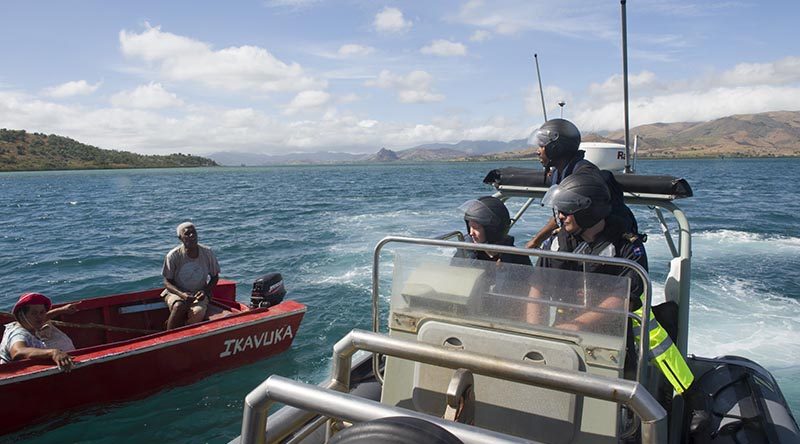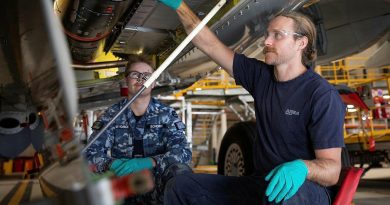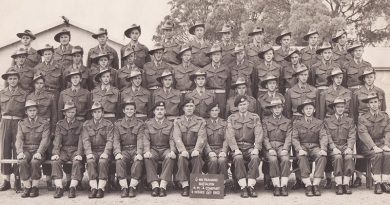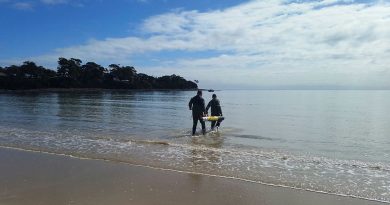HMNZS Hawea finds 45 infringements on Fiji patrol
Share the post "HMNZS Hawea finds 45 infringements on Fiji patrol"

Royal New Zealand Navy inshore patrol vessel HMNZS Hawea boarded about 250 vessels and detected 45 infringements since arriving in Fiji in late April to help the Fiji government with maritime surveillance.
CAPTION: Fijian Fisheries Officer Waisea Aka speaks to a local fisherman during a HMNZS Hawea-assisted fisheries and customs patrol in Fiji. NZDF photo.
In a separate New Zealand Defence Force fisheries patrol in the South Pacific, offshore patrol vessel HMNZS Otago inspected 12 vessels, including a transhipment vessel for the first time, during an 18-day patrol north and north-east of New Zealand’s Exclusive Economic Zone.
Commanding officer of Hawea Lieutenant Dave Luhrs said the infringements included vessels fishing without licences, illegal use of underwater breathing apparatus for fishing, dumping of rubbish at sea and safety infringements such as not holding master’s licences, not having lifejackets and overloading of vessels.
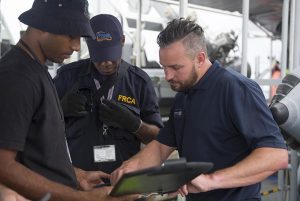
Hawea is conducting its sixth patrol with staff from the Republic of Fiji Navy and Fiji’s Ministry of Fisheries and Forests, and Revenue and Customs Authority.
Fishery Officers from New Zealand’s Ministry for Primary Industries are also taking part.
About 20 Republic of Fiji Navy personnel have received training on the ship.
NZDF sent Hawea to Fiji in late April for six months to help patrol its territorial waters and Exclusive Economic Zone.
Hawea’s deployment to Fiji marks the first time that a Royal New Zealand Navy inshore patrol vessel has been deployed to the South Pacific, and fulfils the New Zealand government’s offer to help Fiji with maritime surveillance.
HMNZS Otago was sent to patrol the high seas to the north and north-east of New Zealand’s Exclusive Economic Zone to support the Ministry for Primary Industries.
Otago’s commanding officer Lieutenant Commander Lorna Gray said some of the vessels inspected were caught either misreporting or not reporting their catch.
“The transhipment vessel we boarded allows the fishing vessels to offload their catch so that they can continue fishing and remain in the area,” Lieutenant Commander Gray said.
“This is the first time a transhipment vessel has been boarded, providing an opportunity to monitor the process and ensure compliance.
“The importance of high-seas patrols cannot be overemphasised, because they enable confidence in the accuracy of catch reporting, which is essential to ensuring the sustainability of fishery resources, while also deterring those who may be considering not complying with the rules.”
Maritime Component commander Commodore Jim Gilmour said the NZDF provided aircraft and ships routinely for monitoring, control and surveillance activities.
“We are committed to supporting fisheries management by South Pacific island countries and take matters of non-compliance seriously,” he said.

CONTACT may have digitally altered this photo 😉
.
.
.
.
+ + +
.

.
.
.
.
.

.
.
Share the post "HMNZS Hawea finds 45 infringements on Fiji patrol"

